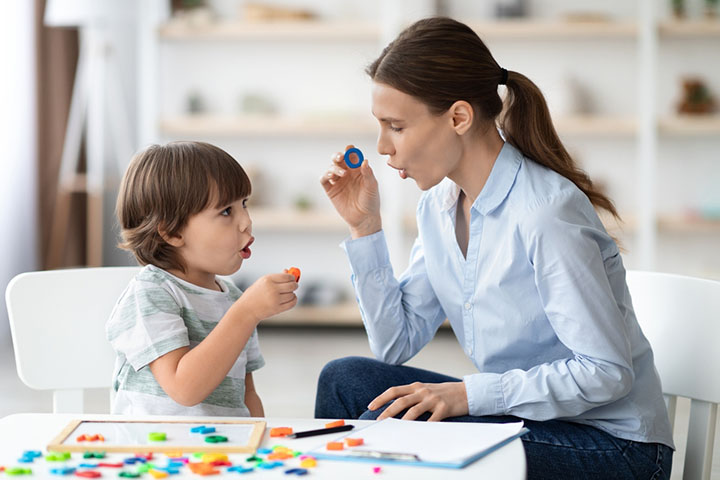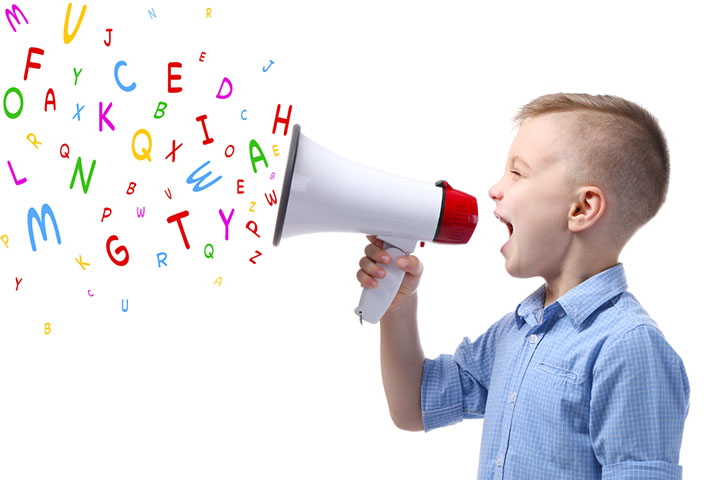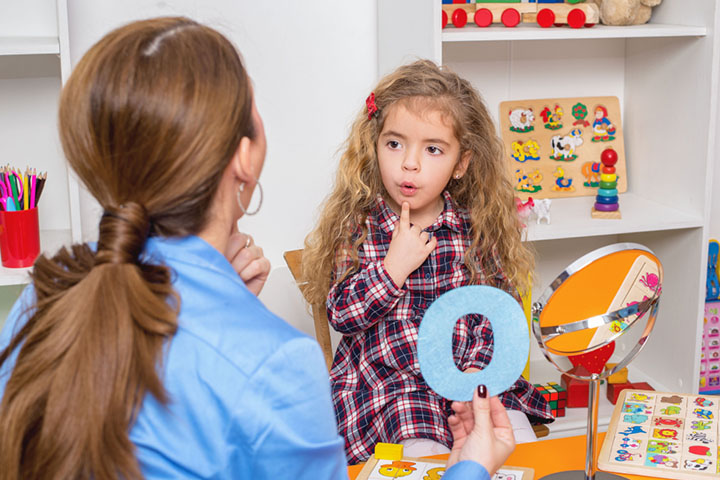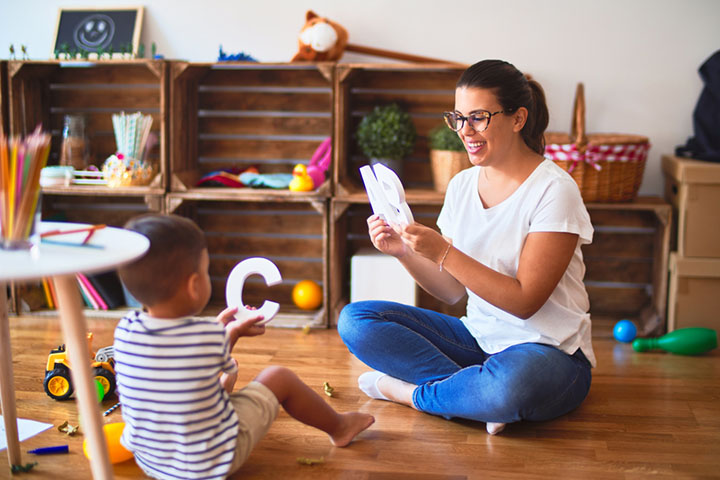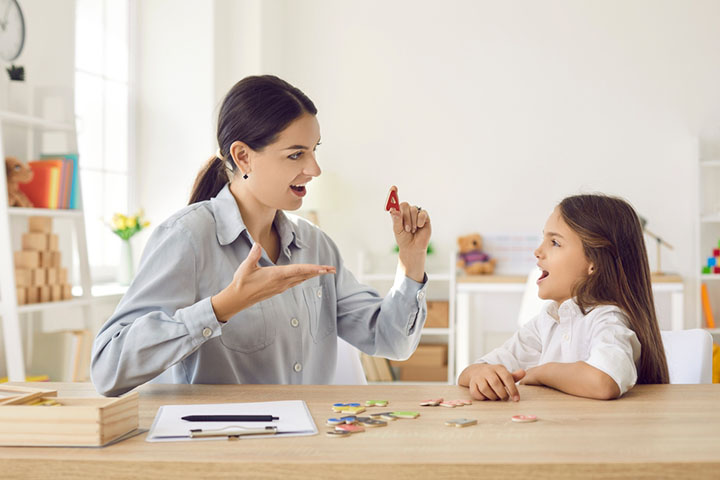
Image: Shutterstock
Your child’s language development sets the stage for a bright future filled with learning and effective communication. Think of your little one as a language sponge during these early years, eagerly soaking up words, sounds, and meanings. It’s in these formative years that the building blocks for their learning and social skills are laid. Recognizing the significance of early language development and being aware of the ways you can actively support it is not just beneficial, it’s the key to unlocking your child’s potential for success. As a parent, you play a vital role in creating an environment that nourishes and encourages your child’s language skills, paving the way for a lifetime of confident expression and academic achievements. Read on to know more!
Why Early Language Development Is Good For Children
Image: Shutterstock
- Brain Power Boost
Early language development sparks a power boost in your child’s brain. When they hear and interact with words, their brain cells make connections, helping them think, learn, and solve problems.
- Social Butterfly Skills
Language is the tool your child uses to connect with others. When they learn to express themselves, share ideas, and understand what others say, they become social butterflies. These skills build friendships and positive relationships.
- Academic Super Starter
Early language skills are like the rocket fuel that launches your child into academic success. Reading, writing, and even math are all linked to language development. The better their language skills, the smoother their academic journey.
- Confidence Booster
Image: Shutterstock
Imagine the joy your child feels when they successfully communicate their thoughts. Early language development boosts their confidence, making them feel capable and ready to take on new challenges.
- Exploring Curiosity
Early language development nurtures your child’s natural curiosity. As they learn new words and engage in conversations, their interest in the world around them grows. This curiosity becomes a driving force, encouraging them to explore, ask questions, and seek knowledge. These are essential qualities for lifelong learning.
- Problem-Solving Prowess
The benefits of early language development extend to sharpening your child’s problem-solving skills. Through language, they not only express their thoughts but also learn to analyze situations, identify them, and communicate their ideas effectively. This early exposure to problem-solving sets the foundation for critical thinking abilities that will serve them well in various aspects of life.
What You Can Do To Promote Early Language Development In Children
Image: Shutterstock
- Talk To Them
Your child learns from you, so talk to them often. Narrate your day, describe what you’re doing, and ask simple questions. This helps them grasp new words and understand how language works.
- Read Together Every Day
Reading is a magical way to introduce your child to a world of words. Pick books with colorful pictures and simple stories. Let them turn the pages and ask questions about the pictures.
- Sing And Rhyme
Children love music and rhymes. Singing together is not only fun but also helps with language development. Rhymes teach them about the rhythm and patterns of language, making it easier for them to learn new words.
- Repeat And Reinforce
Image: Shutterstock
Repetition is a friend when it comes to early language development. Repeat words and phrases, reinforcing what your child is learning. Repetition helps them remember and use new words in their own communication.
- Listen Actively
When your child talks, listen with full attention. Respond to what they say, expanding on their words. This not only boosts their confidence but also shows them the value of communication.
- Encourage Playtime Conversations
Playtime is not just for fun; it’s also a language development goldmine. Engage in conversations during play. Use dolls, toys, or building blocks to create scenarios that encourage talking and imaginative play.
- Limit Screen Time
While screens can offer educational content, limit your child’s screen time. Real-life interactions and hands-on experiences are more effective in building language skills.
- Create A Language-Rich Environment
Image: Shutterstock
Surround your child with words. Label objects in their environment, like furniture, toys, and household items. This helps them make connections between words and the things around them.
- Celebrate Communication
When your child makes an effort to communicate, celebrate it. Whether it’s a simple word, a sentence, or even a gesture, acknowledge their attempts. Positive reinforcement encourages them to keep trying.
- Be Patient And Supportive
Every child develops at their own pace. Be patient and supportive as they go through the world of language. Encourage them without pressure, and celebrate their progress, no matter how small.
Your active involvement in your child’s early language development helps in laying the foundation for their future success. Through conversations, shared stories, and playful interactions, you’re not just exchanging words but fostering a deeper connection and building a positive environment for learning. Each smile and shared moment becomes an investment in a language-rich world for your child, sparking curiosity and providing the tools for a lifetime of success and happiness. Cherish these simple yet powerful acts, for you’re building the road of your child’s remarkable life ahead.

